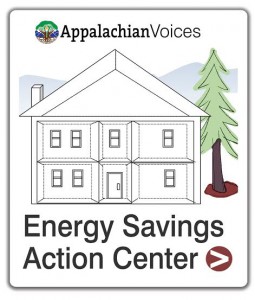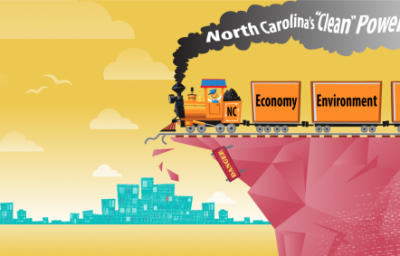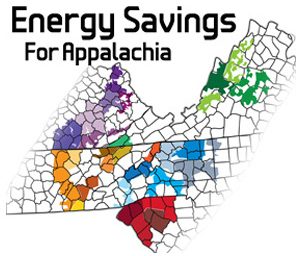

BLOGGER INDEX
Rory McIlmoil
Rory is an energy policy and finance wonk with over a decade of experience working on energy policy and planning in Appalachia. He joined Appalachian Voices in spring 2013 as Energy Policy Director to head up our Energy Savings for Appalachia program. His dog, Hobo, is our official Boone office mascot.North Carolina’s reckless approach to the Clean Power Plan: Part 3
Thursday, January 14th, 2016 | Posted by Rory McIlmoil | No Comments
North Carolina’s reckless approach to the Clean Power Plan: Part 1
Monday, January 11th, 2016 | Posted by Rory McIlmoil | 2 Comments
Turning down the heat: A collaborative effort to reduce energy bills
Friday, July 10th, 2015 | Posted by Rory McIlmoil | No Comments
Our Energy Savings campaign is heating up in the High Country
Thursday, January 29th, 2015 | Posted by Rory McIlmoil | No Comments
 Back in October we launched the High Country Home Energy Makeover Contest as part of our campaign to motivate Blue Ridge Electric Membership Corp. to offer an on-bill financing program for their members in western North Carolina. We solicited enough support to pay for energy efficiency retrofits for three Blue Ridge Electric members. Read on to meet the contest winners. [ Read More ]
Back in October we launched the High Country Home Energy Makeover Contest as part of our campaign to motivate Blue Ridge Electric Membership Corp. to offer an on-bill financing program for their members in western North Carolina. We solicited enough support to pay for energy efficiency retrofits for three Blue Ridge Electric members. Read on to meet the contest winners. [ Read More ]Upgrade to Save? Sounds like a good idea to us!
Friday, October 24th, 2014 | Posted by Rory McIlmoil | No Comments
 Through its brand new program, Upgrade to $ave, Roanoke Electric Cooperative is offering its members on-bill financing for home energy efficiency improvements. The program is made possible by a $6 million loan through the U.S. Department of Agriculture's Energy Efficiency and Conservation Loan Program.
[ Read More ]
Through its brand new program, Upgrade to $ave, Roanoke Electric Cooperative is offering its members on-bill financing for home energy efficiency improvements. The program is made possible by a $6 million loan through the U.S. Department of Agriculture's Energy Efficiency and Conservation Loan Program.
[ Read More ]Energy efficiency at the forefront of cooperative principles in Tennessee
Wednesday, September 17th, 2014 | Posted by Rory McIlmoil | No Comments
 Through concerted outreach to East Tennessee electric co-ops and local stakeholders, Appalachian Voices played a key part in making a recent statewide energy efficiency retreat happen. We're excited by the prospect of a statewide energy efficiency financing program in Tennessee, and we remain committed by doing everything we can to see it become successful in the near future. [ Read More ]
Through concerted outreach to East Tennessee electric co-ops and local stakeholders, Appalachian Voices played a key part in making a recent statewide energy efficiency retreat happen. We're excited by the prospect of a statewide energy efficiency financing program in Tennessee, and we remain committed by doing everything we can to see it become successful in the near future. [ Read More ]The Power of Energy Efficiency — Building a Stronger Economy for Appalachia (Part 5)
Tuesday, July 15th, 2014 | Posted by Rory McIlmoil | No Comments
 Tapping into Appalachia's vast potential for energy efficiency will help to alleviate poverty and create local jobs while reducing the environmental impact associated with our energy use. In fact, energy efficiency may be the most vital solution to Appalachia’s energy and economic future. [ Read More ]
Tapping into Appalachia's vast potential for energy efficiency will help to alleviate poverty and create local jobs while reducing the environmental impact associated with our energy use. In fact, energy efficiency may be the most vital solution to Appalachia’s energy and economic future. [ Read More ]The Power of Energy Efficiency — Building a Stronger Economy for Appalachia (Part 4)
Wednesday, June 25th, 2014 | Posted by Rory McIlmoil | 1 Comment
 This is the fourth installment in a five-part series illustrating the need for greater investments in residential energy efficiency as an economic driver in rural Appalachia. In this post, we explore the history and role of rural electric cooperatives, and explain why they should be doing more to help their members reduce their energy bills, and how they can overcome any barriers they face.
[ Read More ]
This is the fourth installment in a five-part series illustrating the need for greater investments in residential energy efficiency as an economic driver in rural Appalachia. In this post, we explore the history and role of rural electric cooperatives, and explain why they should be doing more to help their members reduce their energy bills, and how they can overcome any barriers they face.
[ Read More ]The Power of Energy Efficiency — Building a Stronger Economy for Appalachia (Part 3)
Wednesday, May 21st, 2014 | Posted by Rory McIlmoil | 1 Comment
 Energy efficiency is merely one strategy that local governments, economic development agencies working with the rural electric co-op or municipal utilities might employ with the goal of diversifying the local economy. But the proven benefits of energy efficiency investments suggest it should be a key focus in any plan for local economic diversification. [ Read More ]
Energy efficiency is merely one strategy that local governments, economic development agencies working with the rural electric co-op or municipal utilities might employ with the goal of diversifying the local economy. But the proven benefits of energy efficiency investments suggest it should be a key focus in any plan for local economic diversification. [ Read More ]The Power of Energy Efficiency — Building a Stronger Economy for Appalachia (Part 2)
Sunday, May 11th, 2014 | Posted by Rory McIlmoil | No Comments
 The small businesses, churches and schools you're likely to find in a typical Appalachian town are pillars of their communities. But they're not sources of significant employment. For most of rural Appalachia, poverty, high unemployment and the lack of economic diversity are persistent problems that have yet to be addressed in any comprehensive, effective manner. [ Read More ]
The small businesses, churches and schools you're likely to find in a typical Appalachian town are pillars of their communities. But they're not sources of significant employment. For most of rural Appalachia, poverty, high unemployment and the lack of economic diversity are persistent problems that have yet to be addressed in any comprehensive, effective manner. [ Read More ]The Power of Energy Efficiency — Building a Stronger Economy for Appalachia (Part 1)
Thursday, April 17th, 2014 | Posted by Rory McIlmoil | No Comments
 When you think of poverty, what words do you associate with it? Many of us might think of words like “low-income,” “unemployment” or “homelessness.” Unfortunately, it is not often that we associate poverty with electricity costs, because for many across the United States, especially those living in the South and Appalachia, electricity costs play a significant role in worsening the impacts of poverty.
[ Read More ]
When you think of poverty, what words do you associate with it? Many of us might think of words like “low-income,” “unemployment” or “homelessness.” Unfortunately, it is not often that we associate poverty with electricity costs, because for many across the United States, especially those living in the South and Appalachia, electricity costs play a significant role in worsening the impacts of poverty.
[ Read More ]On Heels of USDA Energy Efficiency Loan Program, Appalachian Voices Launches the Energy Savings Action Center
Thursday, December 12th, 2013 | Posted by Rory McIlmoil | No Comments

The Energy Savings Action Center is an easy-to-use tool designed to help save money and energy by promoting energy efficiency loan programs through your electric utility.
On Dec. 4, the U.S. Department of Agriculture announced the Energy Efficiency and Conservation Loan Program (EECLP), a new loan program that will provide at least $250 million to rural electric cooperatives each year to develop or expand energy efficiency loan programs for residential and business customers.
To encourage rural electric cooperatives across Appalachia take advantage of the new program, and help the region’s residents save money on their energy bills, Appalachian Voices created the Energy Savings Action Center.
Stephen Johnson of the online publication Electric Co-op Today stressed the importance of the EECLP, stating that “Although energy efficiency measures can reduce home energy use considerably, many consumers and businesses do not invest in them because they lack the capital or financing to do so.”
(more…)




